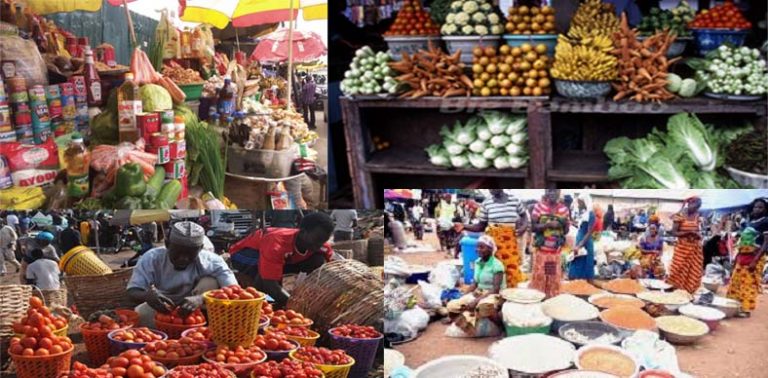Sanusi Abdullahi Oyelekan.
Residents in the parts of Nigeria have called on Federal Government to come to their aid as prices of essential food items went up by at least 30 per cent between December and April as earlier reported by this medium.
The situation has made consumers in states like Lagos, Ogun, Gombe, Kwara, Sokoto, Ekiti, Osun and Niger states lamented the hardships caused by the price hikes.
Speaking to the newsmen, a resident of Isolo, Mr Rafiu Adedoja, complained that the price of a wrap of his favourite meal, amala, had increased.
According to him, due to the nature of his work as a bricklayer, he eats daily at a popular canteen. He lamented that he used to buy a wrap of amala for N100 but now he buys at N200, noting that the portion has become smaller.
He noted that he now buys at least five wraps which is N1,000, excluding the meat which brings the cost of his meal to between N1,600 and N2,000 which is not economical for him given the present state of the economy where jobs come in trickles.
Also speaking to our correspondent, a mother of four, who is a hairdresser in the Okota area of Lagos, Mrs Bola Adekunle, decried that the majority of the food items in the market especially garri, beans, groundnut oil, and even yam had increased which was affecting so many people especially low-income earners like her with children to feed.
She told our correspondent that food prices were becoming unbearable and getting worse daily.
“We eat once a day now, but if I record higher sales, we can eat twice. In the last two months, I can’t remember the last time that my family ate three square meals,” Adekunle moaned.
An industrial chemist, Mr. Harrison Chinaka, said, “It is very obvious that there has been a continuous and rapid hike in the prices of goods in the market. I mean every foodstuff in the market; the prices are increasing almost every hour
“You find out that what you bought in the morning by the time you get there in the afternoon or evening, they will tell you that the price has changed. I bought a paint of garri not up to two weeks ago for about N2, 900 and three days after I went to buy the same quantity of garri and I was told it now goes for N3,500
“The same thing applies to bread and provisions, the prices of everything are increasing and it is not as if salaries are being increased and it is becoming difficult for an average Nigerian to cope especially someone with a family. The person has to pay school fees, house rent and continuously pay bills, it is becoming difficult to survive here in Nigeria,” he said.
Also speaking, Mr. Prosper Dike, said, “As for me what I will say is that the prices of commodities now are no longer the same as it is used to be before. For instance, a bag of rice has gone higher than what it used to be. How do you expect us with our source of income that has not increased, how do we meet up considering the way things are going?”
Pointing out that the price of the dollar had depreciated to the naira in recent times, a factor that lots of traders blame for the hike in food prices, Dike wondered why prices of food are yet to reduce.
The development has made consumers groan, saying the hikes in the prices of goods have affected their budgets.
Prices of food items have continued to soar across the country despite the recent rebound of the naira.
This came as President Bola Tinubu recently vowed to ensure a rebound of the local currency reflected in the prices of commodities.
As a follow-up to the President’s decision, operatives of the Federal Competition and Consumer Protection Commission (FCCPC) last week raided some Abuja supermarkets over unfair pricing, vowing to extend the clampdown to other states.
However, the latest findings by our correspondents showed that the prices of basic food items like beans, and garri had risen by at least 30 per cent.
In the past few months, the prices of major food items have continued to rise, especially after Tinubu removed the petrol subsidy and devalued the naira. As the country’s inflationary pressure deepens, Nigerians have been finding it difficult to put food on their tables. This became aggravated when the naira fell sharply against the dollar and other foreign currencies like the CFA between February and March.
As the naira appreciated in the foreign exchange market lately, there were high expectations that the prices of food items, which went up alongside the dollar, would also follow a downward trend in the market. However, findings by our correspondents confirmed that only the prices of rice had so far reduced.
As of Wednesday, findings showed that the prices of beans, garri and other food items remained high despite the naira appreciation.
Our correspondents who visited various markets in some states gathered that traders and sellers were lamenting over the high cost of food items; though the prices differ depending on the location.
According to the surveys, a bag of garri now sells at N41,000, up from N37,000 in less than two weeks ago. In January, it was around N31,000. This indicates a 31 per cent increase.
Similarly, a bag of one kilogramme of Semovita which went for N700 in December now goes for N1,400. This represents a 100 per cent increase in the price. Also, one kilogramme of wheat which went for N500 in December is now being sold for N1,200. This indicates a 140 per cent hike.
Also, findings showed that in January, a bag of beans went for between N65,000 and N70,000. However, as of Wednesday, a bag of beans went for N185,000. This indicates a 164 per cent increase.
END.

